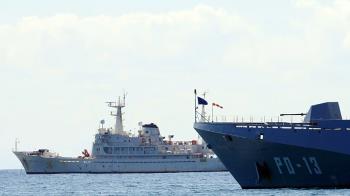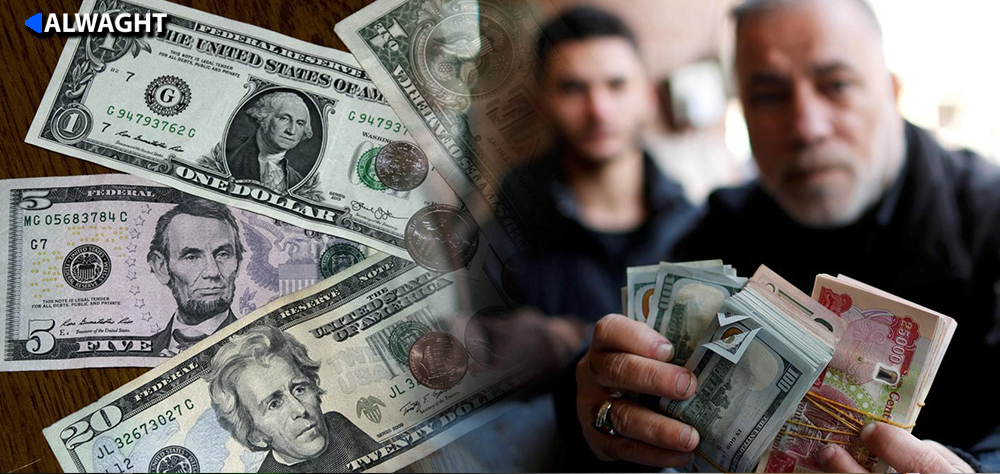Alwaght- In the first months of 2021, in addition to being embroiled in political tensions, Iraq became mired in an economic crisis more than before. In the last months of 2020, the government and parliament launched a plan to deal with the consequences of the economic crisis, among them the budget deficit financing law and the devaluation of the national currency dinar against the US dollar. Now, in the new situation, the government has resorted to launching "personnel number system" (PNS) to compensate for the budget deficit and the ability to pay employees' salaries. Based on this arrangement, the government intends to eliminate all salaried employees who have several illegal payments.
Pushing towards financial discipline
Recently, Deputy Minister of Planning Maher Hamad unveiled the details of the PNS, which will prevent employees from being paid more than one salary. Ministry of Planning and the National Statistics Organization are working to set up the PNS. Kurdistan region in the north is not included in this plan, and according to Hamad, Baghdad told Erbil if it wants a transparent interaction with the central government, it must announce its decision to join the system.
According to this system, all employees and retirees, contract workers, day laborers or companies of this ministry will have a personnel number that will be connected to the payroll output in the ministry of economy. After that, the information will be networked and each government employee will have an ID card including personnel number, organizational hierarchy, organizational position, salary and other information, and this system will prevent the payment of more than one salary to employees.
The organization of salaries and the increase of financial discipline can be considered a necessity in the context of the economic crisis in Iraq. Here are some reasons behind this system introduction.
Large number of government employees and government inability to pay them: Undoubtedly, the most important driving force behind the creation of the "sophisticated" PNS is the government's inability to finance the payment of salaries. Low oil prices and the coronavirus outbreak have had the largest role in rise of this situation.
In Iraq, with a population of 39 million, about 4 million are government employees, of whom 1.85 million are civil service employees and the rest are Iraqi armed forces personnel. It is noteworthy that Baghdad needs $118 million a day to pay the salaries of government employees, which means that the central government must have more than $3.5 billion in national resources in one month. As oil prices slumped and the Covid-19 pandemic struck, the government faced serious problems in obtaining the necessary funding, and this has prompted parliament and the government in 2021 to struggle for a remedy for the situation.
The government of Prime Minister Mostafa al-Kadhimi has resorted to a plan to reduce the rate of the dinar against the US dollar to reverse the budget deficit in 2021. In previous years, each dollar rate was set for a range of 1190 to 1250 Iraqi dinars, but now, according to the government's plan, it will increase to 1450 in order for the government to be able to pay employees in dinars. More precisely, if an Iraqi employee was paid 1 million dinars with 1,200-dinar US dollar, he would receive the equivalent of $840, but in the new situation where the rate of the dinar has dropped by 16 to 17 percent, this amount is for one person with a monthly salary of one million dinars reaches about $600.
Iraq's reliance on oil revenues: One considerable point is Iraq's excessive dependence on oil revenues. About 90% of the nation's incomes come from oil sales, and this means that amid the oil price fluctuations, the government funding is easily affected. Introduction of the PNS is undeniably necessary to organize the government expenses in the middle of the global oil markets recession.
Receiving illegal pensions from the government: Another case of rife corruption in Iraq is the reception of illegal pensions from the government. After 2003, many people in Iraq used their influence and law loopholes to arrange several monthly payments in their names and names of others. This has always been a source of the government payment crisis as it had to make excessive payments. For example, about one million non-Iraqis are receiving pensions from the central government in Baghdad. The reality is that Iraq has the largest number of government employees in the region compared to its population. This apparently necessitates such a system by the government.
People distrust the banking sector: Another push for the PNS is Iraq's transition to sophisticated banking system and restoration of popular trust. Currently, about 81 banks are active across Iraq and the Kurdish region. Despite this large number of banks, both Iraqi and international ones, people do not much trust the banking system in their country. They do not open accounts or receive bank cards. Cash is very common in Iraq and people prefer to carry cash even in large amounts with them, and of course this has proven problematic for them.
The government of PM al-Kadhimi advocates implementation of the electronic government to block corruption and give room to transparency. The government and central bank have on their agenda launching a national payment network. The PNS is one link in a chain of measures that will refer the employees to sophisticated banking system and thus solve a multitude of payroll problems.



























